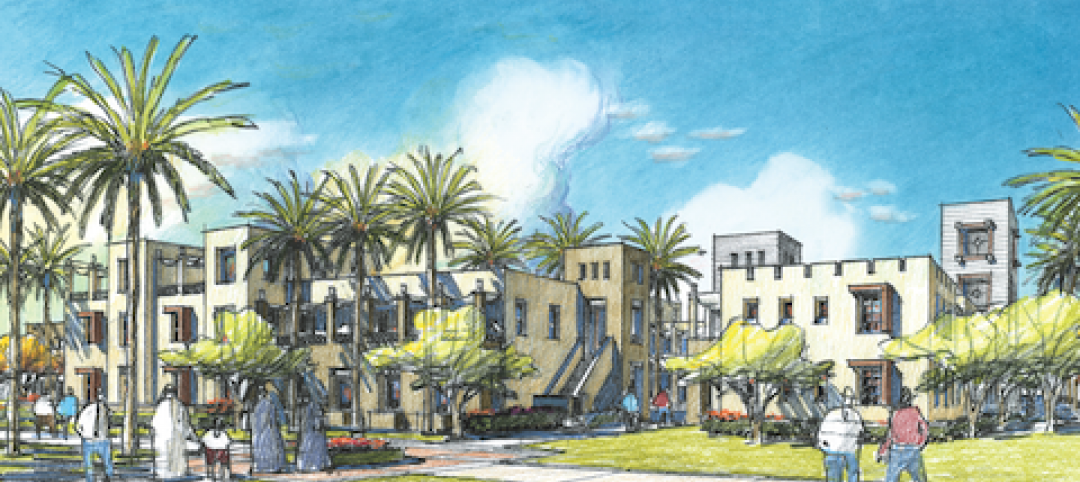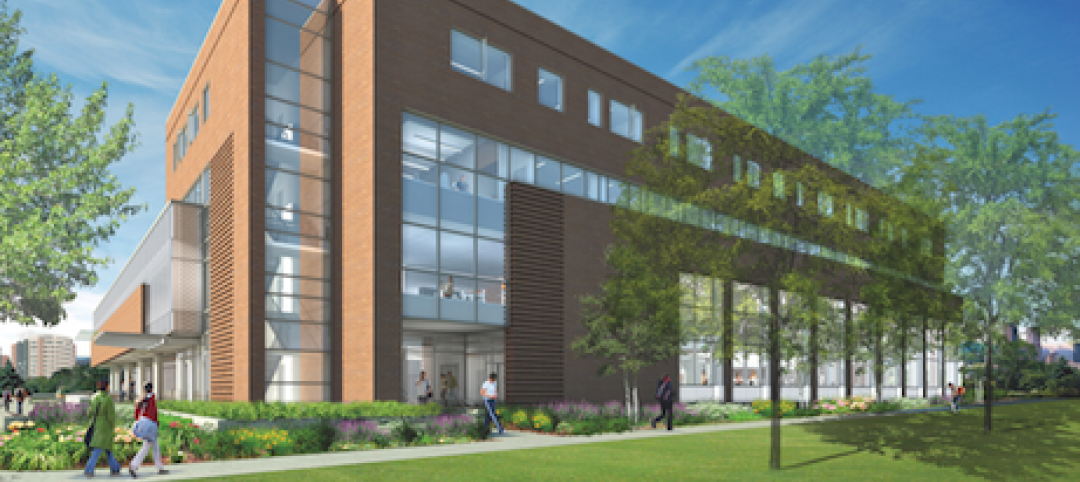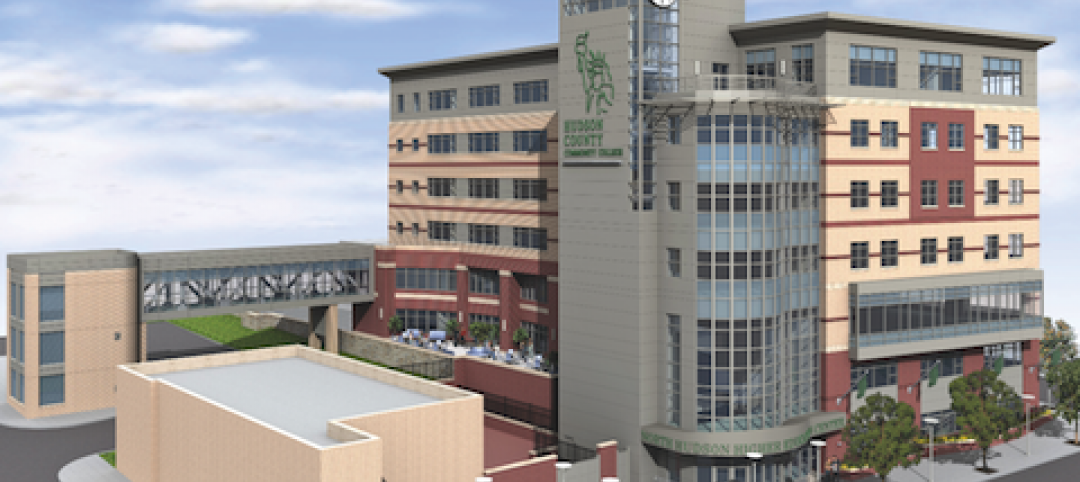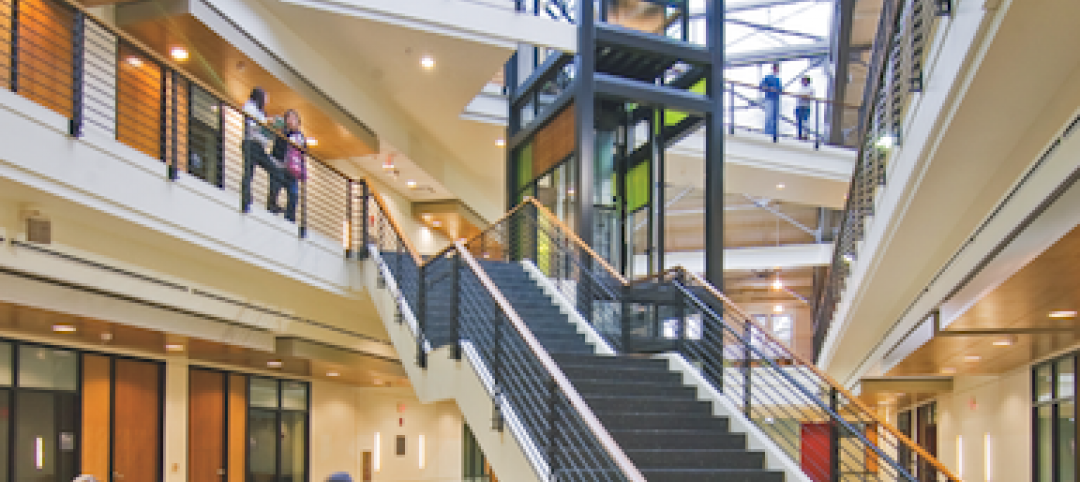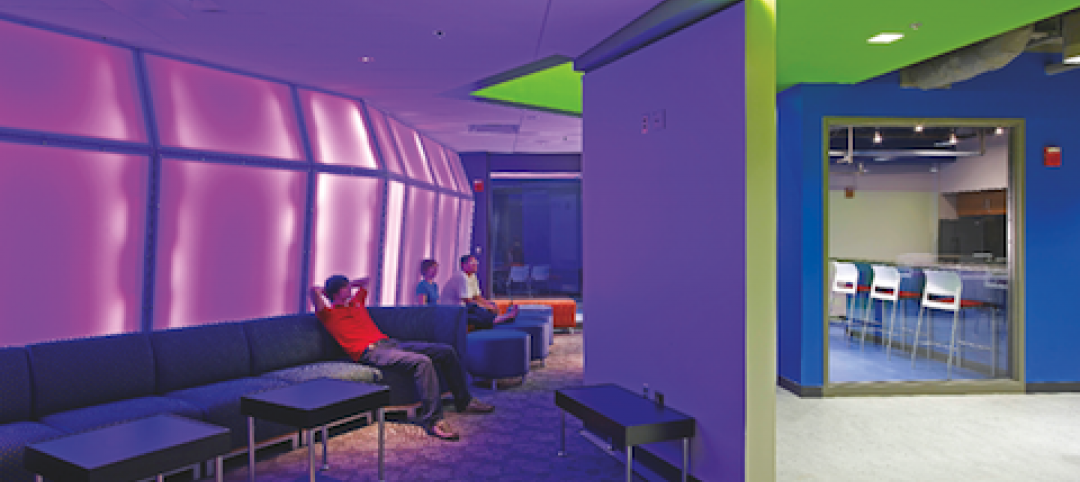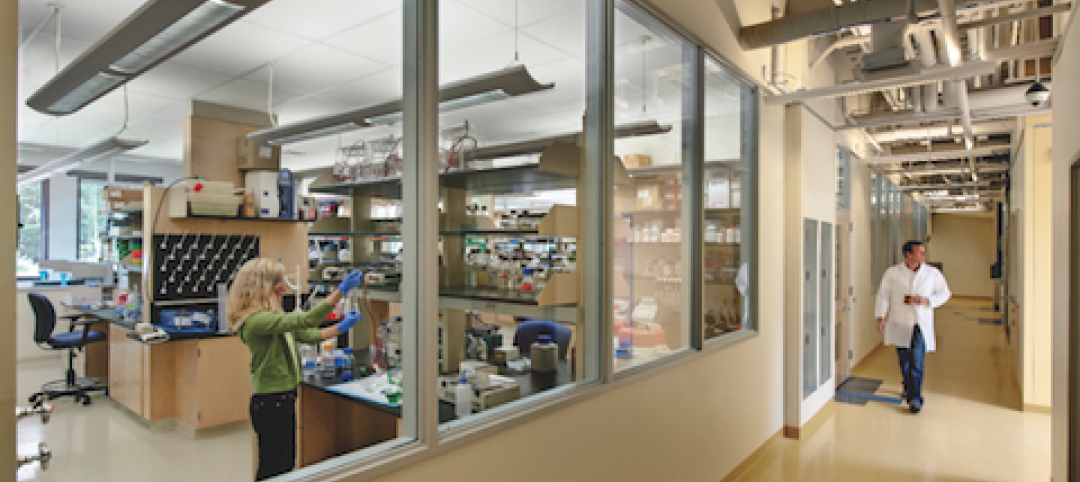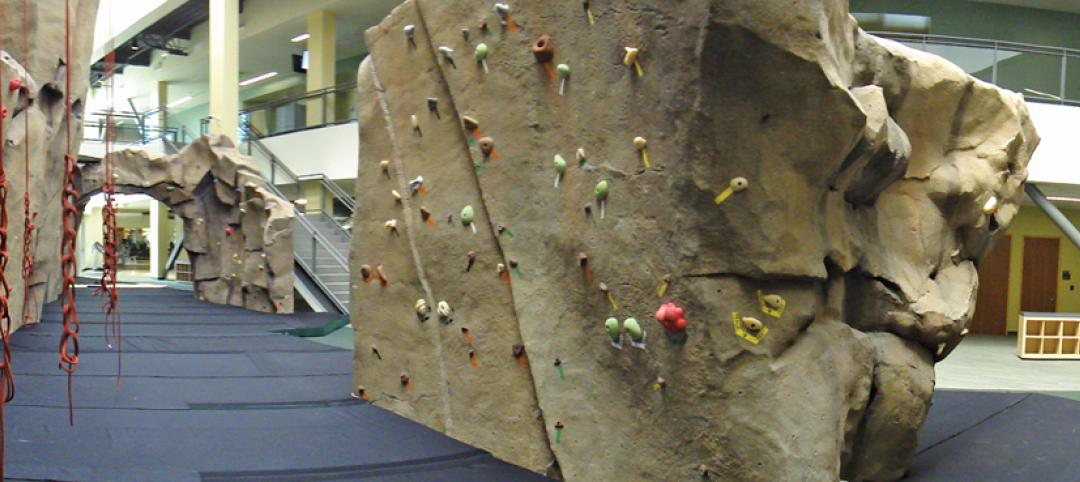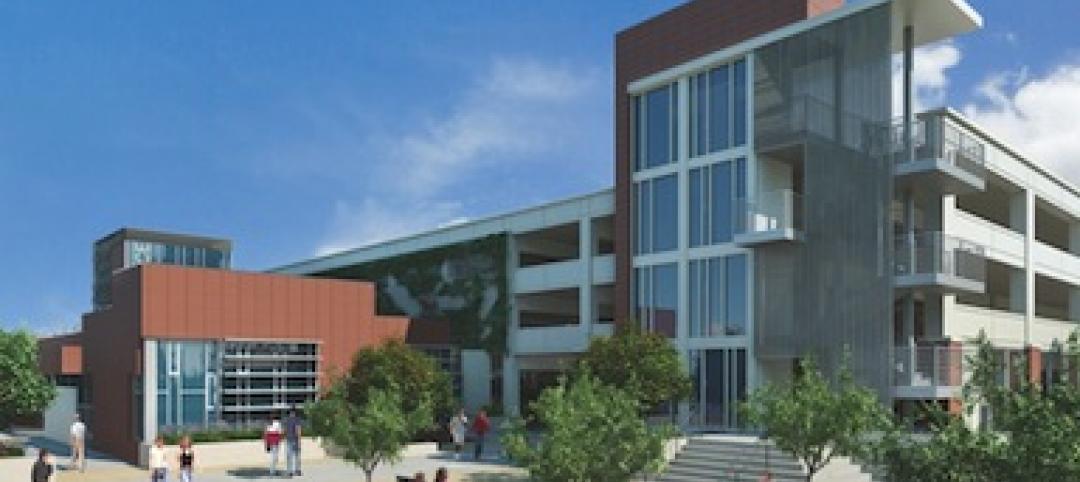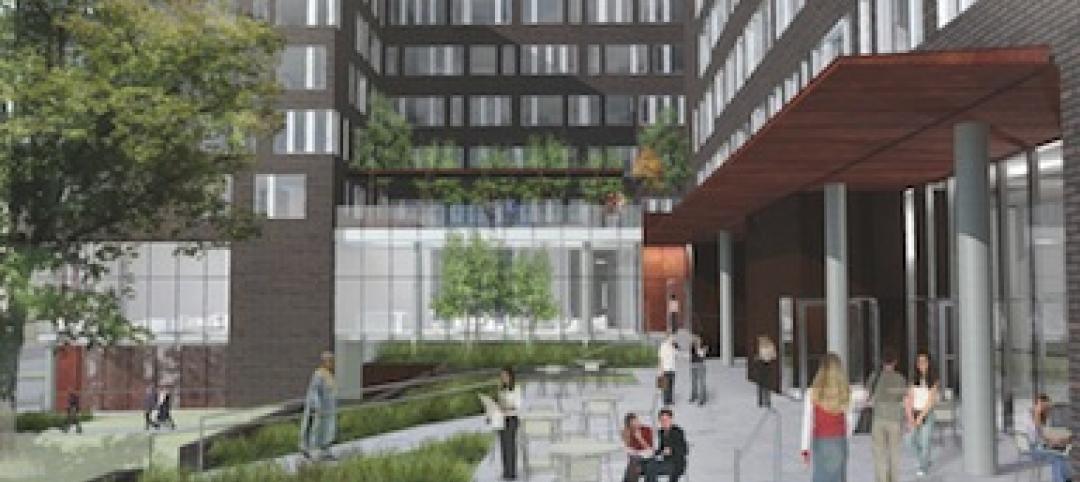Which U.S. cities will be the “life sciences innovation hubs” of the future? What has one designer learned about using modular building systems to build hotels? And what happens when students really get involved in the design of their university’s student center?
These are some of the topics that were addressed on the August 6 episode of “The Weekly,” the live streaming news and analysis program from Horizon TV.
Watch the episode on demand at: https://horizontv.bdcnetwork.com.
REPORT PINPOINTS THE NATION'S 'LIFE SCIENCES INNOVATION HUBS'
David Barista, Editorial Director of BD+C, talked with Audrey Symes, Research Director, Healthcare and Life Sciences with JLL, about the findings of the newly released “JLL 2020 U.S. Life Sciences Outlook.”
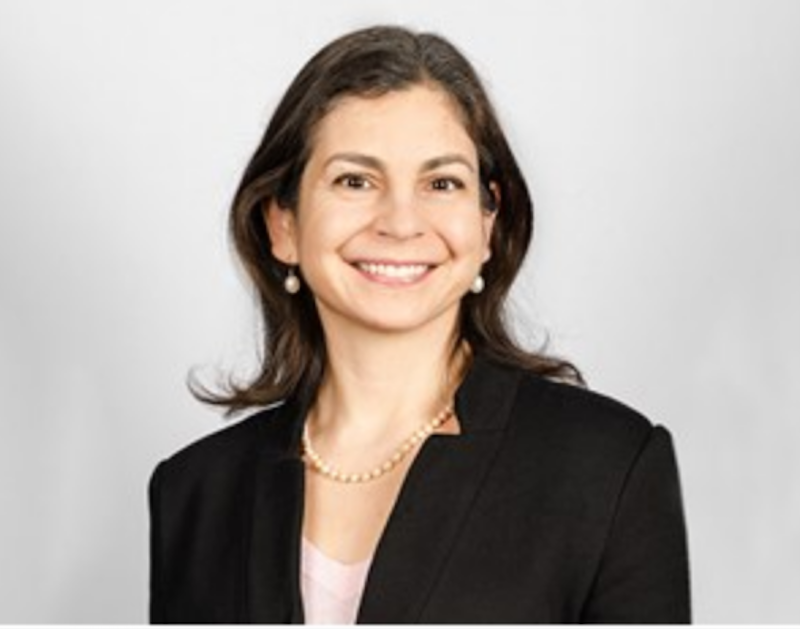
Audrey Symes, Research Director with JLL, will discuss the findings of the newly released “JLL 2020 U.S. Life Sciences Outlook.”
The report tracks the progress of up-and-coming life sciences innovation hubs across the U.S., and details the coming worldwide prescription drug boom and what it means for R&D-related facilities.
AWARD-WINNING EMORY UNIVERSITY STUDENT CENTER
Segment two presented the Emory University Student Center, the Platinum Award winner in the 2020 Building Design+Construction Building Team Awards - the competition’s highest honor. The student center is remarkable because Emory students participated in the early design discussions and had a crucial role in selecting the winning architecture firm in a 5-firm design competition.
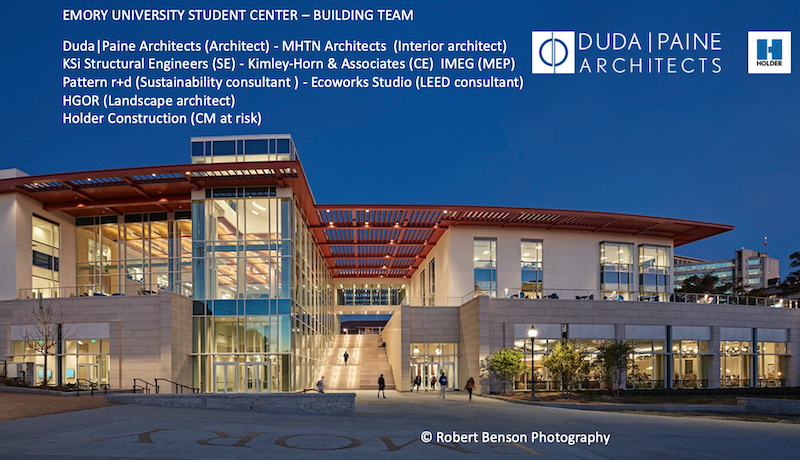
The Building Team for the LEED Platinum Student Center at Emory University, Atlanta.
BD+C Executive Editor Robert Cassidy engaged in a lively conversation with recent Emory graduate Claire Dakhlia, LEED GA, who was among the many Emory students who participated in discussions with architects from the winning firm, Duda|Paine Architects (co-submitter with Holder Construction, the CM at risk), represented by Project Architect Scott Shell. Dr. Ben Perlman, Student Center Director, provides background on the university’s sustainability goals for this LEED Platinum facility.
HKS'S SPRINKLE ON MODULAR DESIGN FOR HOTELS
In our concluding segment, Tom Sprinkle, AIA, Principal and Design Director for HKS in San Francisco, talked with BD+C Senior Editor about HKS's deployment of modular design and construction in its hotel projects, especially how modular can sometimes solve a lot of problems, including tight schedules, confined jobsites, and construction costs.
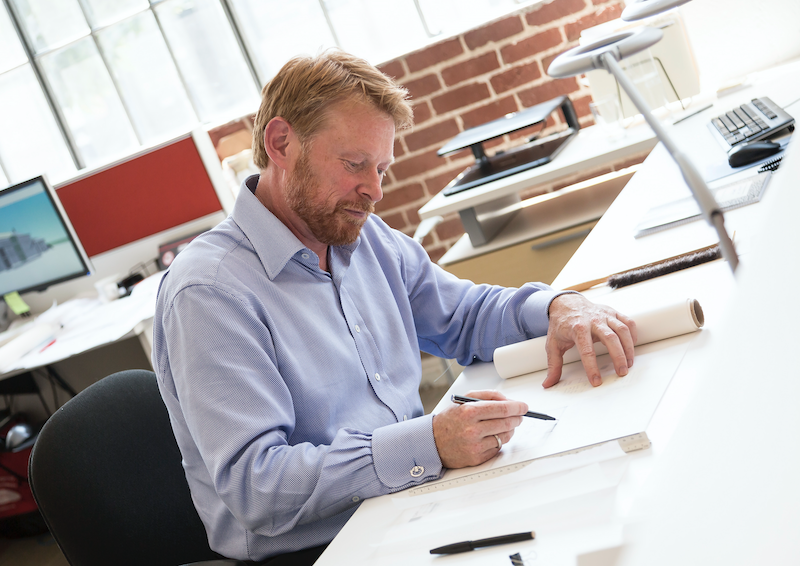
Tom Sprinkle, AIA, leads HKS's work on modular hotel design.
HKS evaluated 15 modular building companies before it found the right choice. Sprinkle also unveils the qualities HKS looks for in its modular building supplier.
‘THE WEEKLY,’ PRESENTED EVERY THURSDAY AT 1 PM EASTERN
“The Weekly” is a production of Horizon TV, the online broadcast arm of SGC Horizon LLC, publishers of Building Design+Construction, Multifamily Design+Construction, Professional Builder, ProRemodeler, and Construction Equipment. The program is hosted by Tony Mancini, Principal—Group Director, SGC Horizon.
Related Stories
| Oct 13, 2010
Residences bring students, faculty together in the Middle East
A new residence complex is in design for United Arab Emirates University in Al Ain, UAE, near Abu Dhabi. Plans for the 120-acre mixed-use development include 710 clustered townhomes and apartments for students and faculty and common areas for community activities.
| Oct 13, 2010
New health center to focus on education and awareness
Construction is getting pumped up at the new Anschutz Health and Wellness Center at the University of Colorado, Denver. The four-story, 94,000-sf building will focus on healthy lifestyles and disease prevention.
| Oct 13, 2010
Community college plans new campus building
Construction is moving along on Hudson County Community College’s North Hudson Campus Center in Union City, N.J. The seven-story, 92,000-sf building will be the first higher education facility in the city.
| Oct 12, 2010
University of Toledo, Memorial Field House
27th Annual Reconstruction Awards—Silver Award. Memorial Field House, once the lovely Collegiate Gothic (ca. 1933) centerpiece (along with neighboring University Hall) of the University of Toledo campus, took its share of abuse after a new athletic arena made it redundant, in 1976. The ultimate insult occurred when the ROTC used it as a paintball venue.
| Oct 12, 2010
Owen Hall, Michigan State University, East Lansing, Mich.
27th Annual Reconstruction Awards—Silver Award. Officials at Michigan State University’s East Lansing Campus were concerned that Owen Hall, a mid-20th-century residence facility, was no longer attracting much interest from its target audience, graduate and international students.
| Oct 12, 2010
Cell and Genome Sciences Building, Farmington, Conn.
27th Annual Reconstruction Awards—Silver Award. Administrators at the University of Connecticut Health Center in Farmington didn’t think much of the 1970s building they planned to turn into the school’s Cell and Genome Sciences Building. It’s not that the former toxicology research facility was in such terrible shape, but the 117,800-sf structure had almost no windows and its interior was dark and chopped up.
| Oct 12, 2010
Full Steam Ahead for Sustainable Power Plant
An innovative restoration turns a historic but inoperable coal-burning steam plant into a modern, energy-efficient marvel at Duke University.
| Sep 16, 2010
Green recreation/wellness center targets physical, environmental health
The 151,000-sf recreation and wellness center at California State University’s Sacramento campus, called the WELL (for “wellness, education, leisure, lifestyle”), has a fitness center, café, indoor track, gymnasium, racquetball courts, educational and counseling space, the largest rock climbing wall in the CSU system.
| Sep 13, 2010
Community college police, parking structure targets LEED Platinum
The San Diego Community College District's $1.555 billion construction program continues with groundbreaking for a 6,000-sf police substation and an 828-space, four-story parking structure at San Diego Miramar College.
| Sep 13, 2010
Campus housing fosters community connection
A 600,000-sf complex on the University of Washington's Seattle campus will include four residence halls for 1,650 students and a 100-seat cafe, 8,000-sf grocery store, and conference center with 200-seat auditorium for both student and community use.



